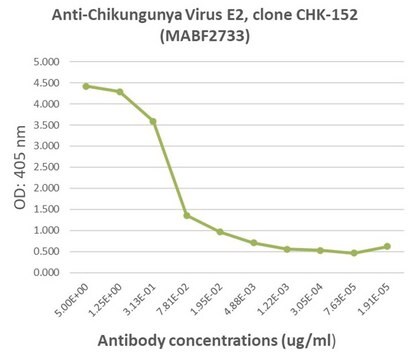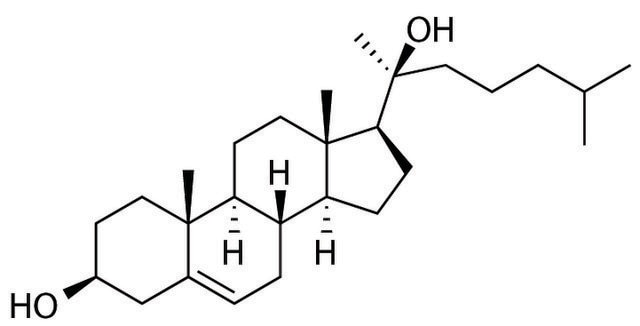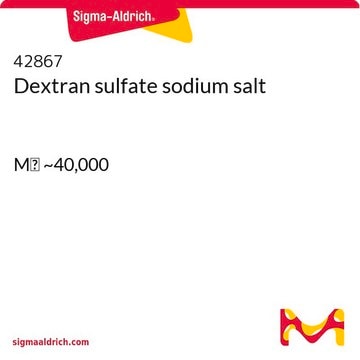MABF3046
Anti-Mayaro Virus E2 Antibody, clone MAY-134
About This Item
Empfohlene Produkte
Biologische Quelle
mouse
Qualitätsniveau
Konjugat
unconjugated
Antikörperform
purified antibody
Antikörper-Produkttyp
primary antibodies
Klon
MAYV-134, monoclonal
Mol-Gew.
calculated mol wt 137.06 kDa
Aufgereinigt durch
using protein G
Speziesreaktivität
virus
Verpackung
antibody small pack of 100 μL
Methode(n)
ELISA: suitable
neutralization: suitable
Isotyp
IgG2a
Epitopsequenz
Extracellular domain
UniProt-Hinterlegungsnummer
Versandbedingung
dry ice
Posttranslationale Modifikation Target
unmodified
Verwandte Kategorien
Allgemeine Beschreibung
Spezifität
Immunogen
Anwendung
Evaluated by ELISA with recombinant Mayaro virus E2 protein.
ELISA Analysis (ELISA): Various dilutions of this antibody detected recombinant E2 protein of Mayaro virus CH (strain Peru).
Tested Applications
Neutralizing: A representative lot neutralized Mayaro Virus E2 in Neutralizing applications (Earnest, J.T., et al. (2019). J Exp Med. 216(10): 2282-2301).
Note: Actual optimal working dilutions must be determined by end user as specimens, and experimental conditions may vary with the end user
Physikalische Form
Lagerung und Haltbarkeit
Sonstige Hinweise
Haftungsausschluss
Not finding the right product?
Try our Produkt-Auswahlhilfe.
Lagerklassenschlüssel
10 - Combustible liquids
WGK
WGK 2
Flammpunkt (°F)
Not applicable
Flammpunkt (°C)
Not applicable
Analysenzertifikate (COA)
Suchen Sie nach Analysenzertifikate (COA), indem Sie die Lot-/Chargennummer des Produkts eingeben. Lot- und Chargennummern sind auf dem Produktetikett hinter den Wörtern ‘Lot’ oder ‘Batch’ (Lot oder Charge) zu finden.
Besitzen Sie dieses Produkt bereits?
In der Dokumentenbibliothek finden Sie die Dokumentation zu den Produkten, die Sie kürzlich erworben haben.
Unser Team von Wissenschaftlern verfügt über Erfahrung in allen Forschungsbereichen einschließlich Life Science, Materialwissenschaften, chemischer Synthese, Chromatographie, Analytik und vielen mehr..
Setzen Sie sich mit dem technischen Dienst in Verbindung.








